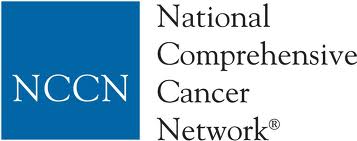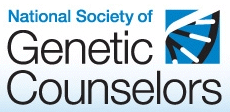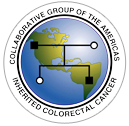Supporting Guidelines
On this page
- EGAPP Working Group
- NCCN Practice Guidelines
- U.S. Multi-Society Taskforce on CRC recommends Universal Tumor Screening for Lynch syndrome for all CRC patients
- National Society of Genetic Counselors & Collaborative Group of America for Inherited Colorectal Cancers
- American College of Obstetrics and Gynecology (ACOG) and Society of Gynecologic Oncology (SGO)
![]() Identifying patients with Lynch Syndrome is an objective of the federal Healthy People 2020 program, which recommends: “Increase the proportion of persons with newly diagnosed colorectal cancer who receive genetic testing to identify Lynch Syndrome (or familial colorectal cancer syndromes).” The Evaluation of Genomic Applications in Practice and Prevention (EGAPP) Working Group, the National Comprehensive Cancer Network, and the National Society of Genetic Counselors (NSGC) and Collaborative Group of the Americas on Inherited Colorectal Cancer ICGA-ICC) also recommend testing.
Identifying patients with Lynch Syndrome is an objective of the federal Healthy People 2020 program, which recommends: “Increase the proportion of persons with newly diagnosed colorectal cancer who receive genetic testing to identify Lynch Syndrome (or familial colorectal cancer syndromes).” The Evaluation of Genomic Applications in Practice and Prevention (EGAPP) Working Group, the National Comprehensive Cancer Network, and the National Society of Genetic Counselors (NSGC) and Collaborative Group of the Americas on Inherited Colorectal Cancer ICGA-ICC) also recommend testing.
EGAPP Working Group
 In 2009, the EGAPP Working Group found sufficient evidence to recommend offering testing for Lynch Syndrome to people with newly diagnosed CRC, citing its ability to reduce morbidity and mortality in relatives.
In 2009, the EGAPP Working Group found sufficient evidence to recommend offering testing for Lynch Syndrome to people with newly diagnosed CRC, citing its ability to reduce morbidity and mortality in relatives.
Because of the poor performance of the Amsterdam and Bethesda criteria, the Working Group does not recommend use of family history criteria to exclude individuals from screening. Cost-effectiveness analyses were performed but did not provide evidence in favor of recommending one specific universal screening strategy (i.e., MSI vs. IHC vs. IHC plus BRAF).
The group also recommends that informed consent be obtained prior to routine tumor testing.
—
Recommendations from the EGAPP Working Group: genetic testing strategies in newly diagnosed individuals with colorectal cancer aimed at reducing morbidity and mortality from Lynch Syndrome in relatives. Genet Med. 2009;11:35-41.[Full Text]
Palomaki GE, McClain MR, Melillo S, et al. EGAPP supplementary evidence review: DNA testing strategies aimed at reducing morbidity and mortality from Lynch Syndrome. Genet Med. 2009;11:42-65. [Full Text]
NCCN Practice Guidelines

The 2013 National Comprehensive Cancer Network guidelines recommend tumor screening for Lynch Syndrome for all CRC patients or CRC patients diagnosed before age 70 and those 70 years and above who meet Bethesda guidelines and all endometrial cancer patients up to age 50.
The guidelines also address diagnostic criteria and management for Lynch Syndrome, and include a helpful algorithm for following up on tumor testing results.
—
Colorectal cancer screening. Version 2.2013. [Link] – Password required
U.S. Multi-Society Taskforce on CRC recommends Universal Tumor Screening for Lynch syndrome for all CRC patients
Guidelines on Genetic Evaluation and Management of Lynch Syndrome: A Consensus Statement by the US Multi-Society Task Force on Colorectal Cancer
View / Download PDF Manuscript
NSGC & CGA-ICC

 This guideline does not specifically recommend universal testing for LS. However, the NSGC and CGA-ICC endorse IHC tumor testing as the preferred method of screening when universal testing for LS is being implemented in newly diagnosed colon and/or endometrial cancer patients. No recommendation was made about the use of MLH1 promoter methylation and/or BRAF testing after abnormal MLH1 and PMS2 results from IHC. This guideline also provides a review of the literature on LS with emphasis on tumor analysis and testing algorithms.
This guideline does not specifically recommend universal testing for LS. However, the NSGC and CGA-ICC endorse IHC tumor testing as the preferred method of screening when universal testing for LS is being implemented in newly diagnosed colon and/or endometrial cancer patients. No recommendation was made about the use of MLH1 promoter methylation and/or BRAF testing after abnormal MLH1 and PMS2 results from IHC. This guideline also provides a review of the literature on LS with emphasis on tumor analysis and testing algorithms.
—
Weissman SM, Burt R, Church J, et al. Identification of individuals at risk for Lynch Syndrome using targeted evaluations and genetic testing: National Society of Genetic Counselors [NSGC] and the Collaborative Group of the Americas on Inherited Colorectal Cancer [CGA-ICC] Joint Practice Guideline. J Genet Couns. 2012; 21 484-493. [Abstract]
ACOG & SGO


The American College of Obstetricians and Gynecologist and the Society of Gynecologic Oncology 2014 Practice Bulletin on Lynch Syndrome recommended the following based on limited or inconsistent scientific evidence (Level B):
Obstetric and gynecologic physicians and practices should adopt one of the following three approaches for assessing the possibility of Lynch syndrome in a woman personally affected with colorectal or endometrial cancer:
- Perform tumor testing on any endometrial or colorectal tumor from a woman identified to be at risk of Lynch syndrome through a systematic clinical screen that includes a focused personal and family medical history.
- Perform tumor testing on all endometrial or colorectal tumors irrespective of age of diagnosis.
- Perform tumor testing on all endometrial or colorectal tumors diagnosed before 60 years.
Link to bulletin: ACOG and SGO Lynch syndrome practice bulletin